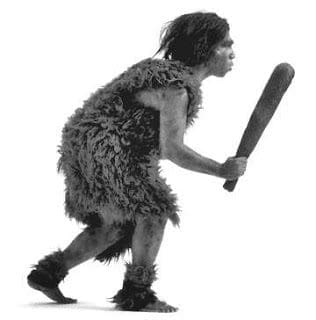
There has been constant controversy surrounding the ideas presented by The Origin of Species since it was first printed in 1859. Since the early 20th century, however, the idea that biological evolution of some form occurred and is responsible for speciation has been almost completely uncontested within the scientific community.
Most controversy over the theory has come because of its philosophical, cosmological, and religious implications, and supporters as well as detractors have interpreted it as generally indicating that human beings are, like all animals, evolved, and that this account of the origins of humankind is squarely at odds with many religious interpretations. The idea that humans are ‘merely’ animals, and are genetically very closely related to other primates, has been independently argued as a repellent notion by generations of detractors.
Others also interpreted the truth of the theory to imply varying types of social changes — one prominent example is the idea of eugenics, formulated by Darwin’s cousin Francis Galton, which argues for the improvement of human heredity by means of political policies. Others have found different political interpretations which have been used as arguments both for and against the theory.
Questions raised about the relation of evolution to the origins of humans have made it an especially tenacious issue with some origin beliefs. It is viewed by some Judeo-Christians as contradicting their beliefs on the origins of humankind as described in the book of Genesis. In some countries, notably in the United States, this has led to what has been called the Creation-Evolution Controversy, which has focused primarily on struggles over teaching curriculum.
The main opposing sides are those espousing religious origin beliefs and those who support the natural history accounts of the sciences of astrophysics, geology and biology.
religious origin beliefs and those who support the natural history accounts of the sciences of astrophysics, geology and biology.
Many of those advocating religious viewpoints (primarily derived from fundamentalist or religiously conservative accounts of origins) hold the scientific explanations to be antithetical to their belief in creation, in particular Creation according to Genesis and creationism. Their key contention is that only a supernatural miracle and not ‘unguided evolution’ can account for origins.
The term evolution is used in an over-reaching sense by creationists to represent the sum total of the scientific theories and observational implications that they see as being in conflict with their world view. The proponents of evolution hold that natural laws alone are sufficient to account for all observations in nature and that supernatural origins are beyond the scope of the scientific method and thus that evolution need not contradict religious beliefs although it does contradict certain, specific religious beliefs.
The controversy is not occurring within the scientific community or academia, whose members, when pressed, overwhelmingly tend to oppose creationism. Nor is it considered of great importance to most religious groups, even those that, when pressed, tend to support creationism.
Rather, the controversy is promoted by vocal creationists and those who actively dispute creationism as an important battle between truth and falsehood. While many other fields of science, such as cosmology and earth science, also conflict with a literal interpretation of religious texts, evolutionary studies have borne the brunt of these controversies.


Be the first to comment